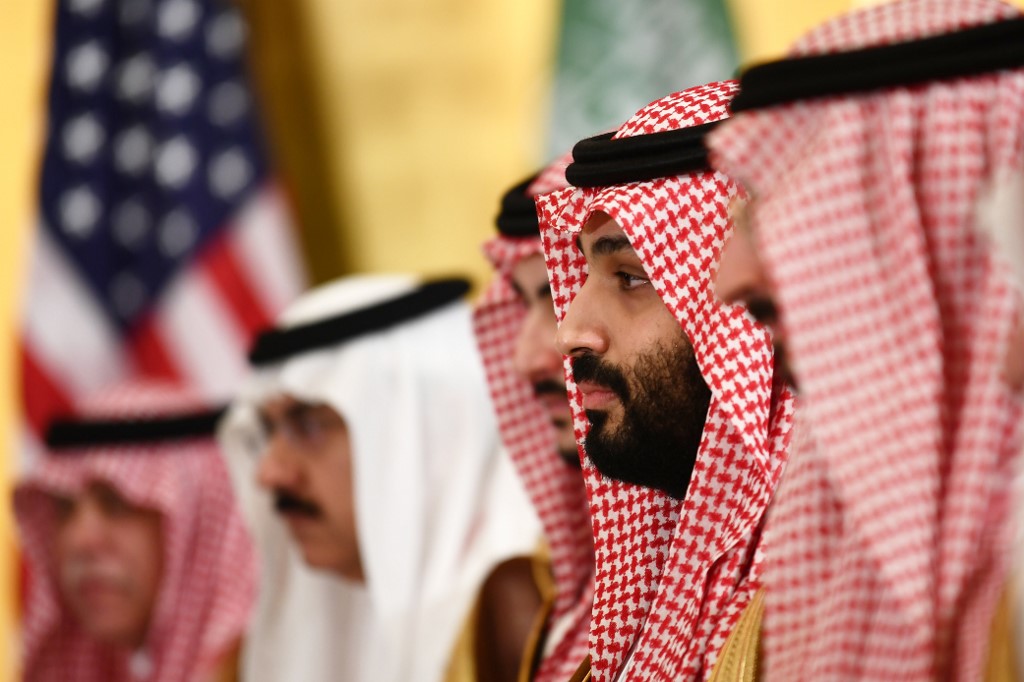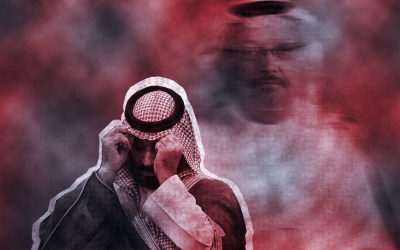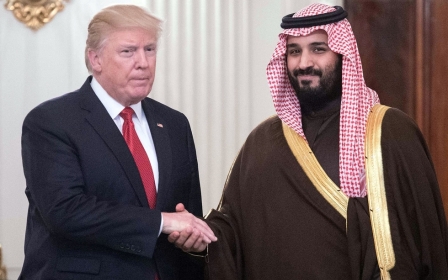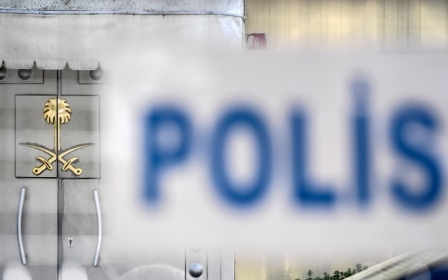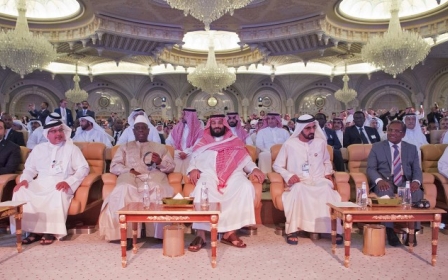A year after Khashoggi's murder, Mohammed bin Salman still evades justice
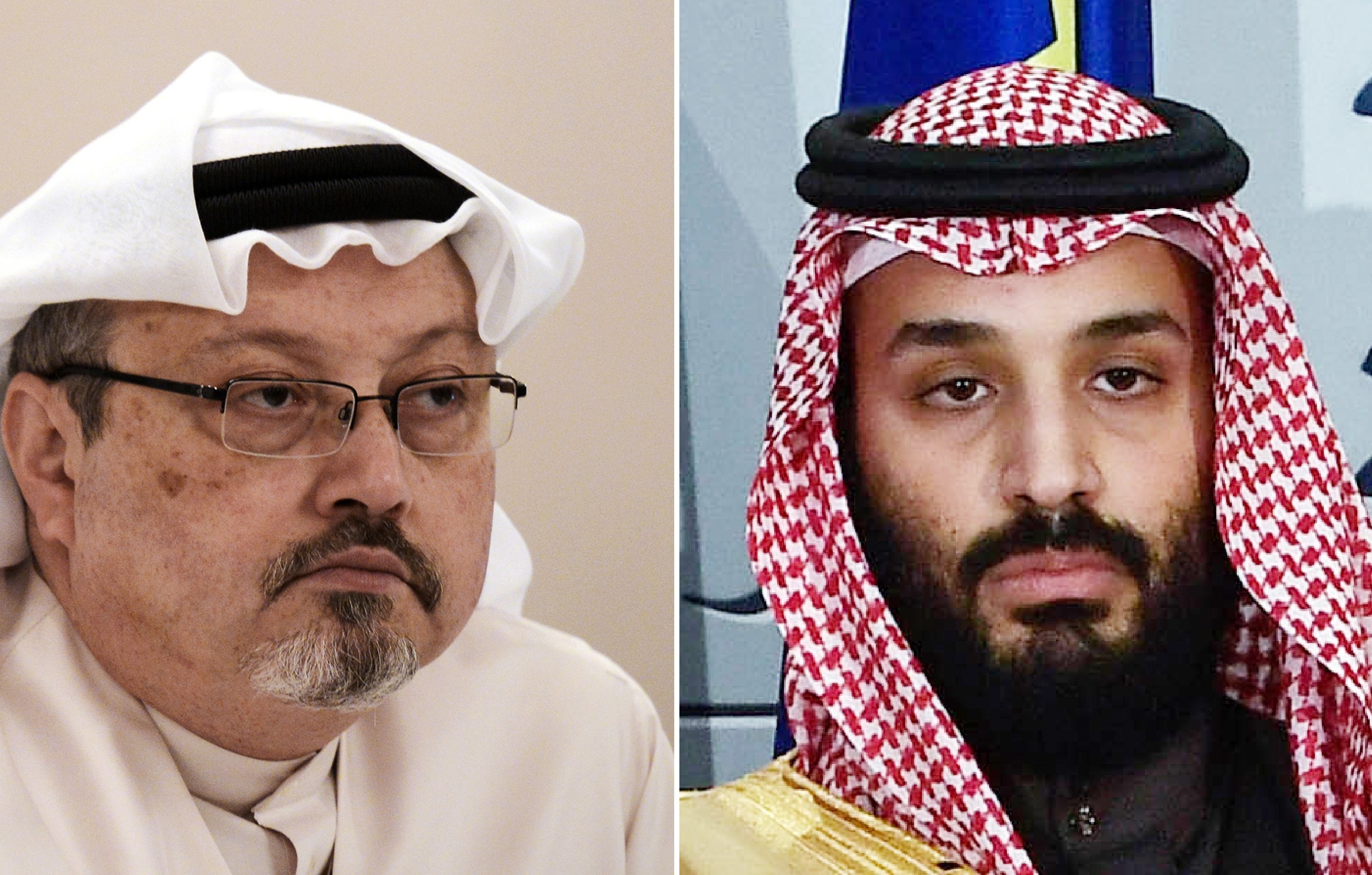
The brutal murder of journalist Jamal Khashoggi at the Saudi consulate in Istanbul on 2 October 2018 shattered the myth of the benevolent monarchy and set Riyadh on a charm offensive.
While the murderers are yet to be convicted in Saudi courts, Crown Prince Mohammed bin Salman has come close to admitting responsibility. His recent PBS interview included a statement that should have been made a year ago, as the prince admitted the crime happened under his watch - but he went on to say that there are three million Saudis working in the public sector, and officials among them were responsible for the crime.
Secretive trial
A year after the murder, neither the perpetrators nor the boss who gave the orders have been convicted. A secretive trial of 11 operatives has yet to issue its verdict. And bin Salman’s key aide, Saud al-Qahtani, named as one of the suspects, has disappeared from the public eye, while the crown prince enjoys applause at carefully staged populist events, including the 23 September celebration of Saudi Arabia’s national day.
The murder exposed the deep state that Mohammed bin Salman inherited from his deposed cousin Mohammed bin Nayef
Yet, while the veneer of “life as normal” continues in the kingdom, the crime of the century changed many things. It was a catalyst that reminded the world of the treacherous nature of a regime long endeared to its Western allies. The US, UK and other partners were not going to change their intimate relations with Saudi Arabia simply for the sake of a slain journalist.
New MEE newsletter: Jerusalem Dispatch
Sign up to get the latest insights and analysis on Israel-Palestine, alongside Turkey Unpacked and other MEE newsletters
After all, thousands of Yemeni men, women and children have been bombed over the past five years, without shaking the conscience of those who arm Saudi Arabia and support its air strikes on the ground.
Realpolitik prevails against the uproar of global civil society and UN agencies who have conducted their own investigations of the Khashoggi murder and the war on Yemen. The Khashoggi case was not going to change the basic rules of the game.
But domestically, the trust between the Saudi leadership and the people has been permanently shattered. The murder exposed the deep state that Mohammed bin Salman inherited from his deposed cousin, Mohammed bin Nayef, who wired Saudi Arabia to control its citizens and widened the net to catch critics, dissidents and civil society founders, under the guise of fighting terrorism.
'Maybe he did'
Unfortunately for bin Nayef, he became persona non grata despite him being the CIA’s preferred candidate to succeed King Salman. Bin Nayef was sacked as US President Donald Trump clashed with his intelligence agencies and offered the crown prince cart blanche to rise to the top posts in the kingdom, amassing a half-dozen senior jobs.
Trump even refused to accept the verdict of his own intelligence services on the Khashoggi murder, shrugging off the evidence and the intercepted phone calls, and concluding that “maybe he did” have knowledge of the event “and maybe he didn’t”.
Trump saw bin Salman as key to delivering some kind of peace between Israelis and Palestinians, as part of a plan orchestrated by his son-in-law, Jared Kushner, with no involvement of the Palestinians themselves.
The plan was a stillborn baby to be delivered by the inexperienced Kushner and the boisterous crown prince, who did not care much about Jerusalem or Palestine. He wanted to consolidate his own power domestically, which he did in a short time between 2015 and 2017, and eliminate Gulf rivals, such as the Qatari emir.
The Khashoggi murder was merely a symbol of the erratic, daring and brutal thinking of the crown prince, who proved capable of humiliating his own kin under the guise of anti-corruption.
His bullying of the wealthy elite to save the initial public offering of five percent of the state-owned Aramco oil company promised to safeguard his Vision 2030 and raise much-needed cash. The princes and business elite detained in the Ritz Carlton two years ago are terrified at the prospect of losing their own excessive wealth, but also their heads, should they attempt resistance.
A clear message
Murdering Khashoggi sent a clear message to all citizens, including royalty. This regime is drawing the curtain on previous episodes of royal politics, namely the deployment of carrots and sticks, which to a certain extent succeeded in containing dissenting voices and earned the regime the title of benevolent dictatorship. But alas, the carrots have vanished, and the sticks have been replaced by sharp knives.
The rentier redistributive economy that ensured acquiescence is giving way to a new strategy of ultimatums. You either pay and keep silent, possibly while under a travel ban, or face a return to the Ritz or somewhere even worse. This is the new face of the kingdom, under the full control of the boy king.
Bin Salman’s treacherous nature is reminiscent of an earlier historical episode. It reminds us of that moment when his grandfather, Abdulaziz bin Saud, eliminated the very people who consolidated his kingdom, a consortium of zealot tribal leaders, as he killed them one after another when the job was finished. He sacked towns, killed people in mosques, and precipitated massacres in places such as Riyadh, Taif, Hayil and others.
While this history has yet to be written properly, the boy king promises to continue that tradition with impunity. The murder of Khashoggi, described by his Turkish fiancee Hatice Cengiz as a man “from the palace,” was perhaps just the beginning. Saudi jails are bulging with prisoners of conscience, and executions are on the rise.
Dishonouring the dead
Bin Salman will not even honour the dead. Khashoggi’s corpse disappeared, and there are no signs that parts of it will be found or returned to his family to be buried properly.
According to Ali al-Dubaisi, director of European Saudi Organisation for Human Rights in Berlin, the regime is still holding 83 corpses of slain detainees, mostly Shia prisoners who were executed behind closed doors.
Khashoggi's murder alerted the world to how the boy king is determined to rule with an iron fist
Even in fully fledged wars, enemies exchange bodies to honour the soldiers and their families. But Salman’s kingdom, meanwhile, gets away not only with murder, but also with denying burial rights to the families of those it kills.
The future of the kingdom under the crown prince looks bleak, despite all the hype about tourism, entertainment and other new opportunities on the horizon. Repression will continue hand-in-hand with so-called reform. Khashoggi’s murder alerted the world to how the boy king is determined to rule with an iron fist.
Only international justice can allow Saudi Arabia to turn the page on this dark episode. The crown prince must be put on trial in absentia by the International Court of Justice in the Hague. His trial should not be limited to seeking justice for Khashoggi, but also for possible war crimes in Yemen - the other forgotten story.
The views expressed in this article belong to the author and do not necessarily reflect the editorial policy of Middle East Eye.
Middle East Eye delivers independent and unrivalled coverage and analysis of the Middle East, North Africa and beyond. To learn more about republishing this content and the associated fees, please fill out this form. More about MEE can be found here.



